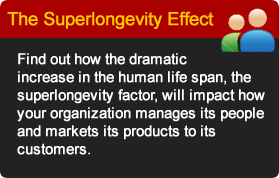Millennials Big Losers in Stagnant "Recovery"
Millennials Big Losers in Stagnant "Recovery"
June 26, 20152:22 PM MST
According to recent surveys, the majority of Americans do not expect today's youth to live as well as previous generations.
Part of their pessimism emanates from the ongoing stagnant economy. Recent polls reveal that six in ten Americans believe the US is in an economic downturn or a recession.Two-thirds of Americans think the country is headed in the wrong direction.
Such polls are a natural reflection of shrinking wages, soaring taxes and job opportunities, as well as the rapid rise in the cost of automobiles, higher education and healthcare insurance deductibles and premiums skyrocket.
The economy shrank in the first quarter of 2015. An eye-popping 93 million Americans are not in the workforce, and nearly 10 million are officially unemployed. Gallup CEO Jim Clifton claims when we add in workers who have dropped out of the workforce, the unemployment rate is closer to 11 percent, not the 5.5 percent the government claims.
Millennials seem to be suffering in this economy worse than many other groups. According to the liberal-leaning Economic Policy Institute, barely half of the 2013 and 2014 college grads are working full-time jobs. The employed grads often must work in jobs that do not require a college degree. The EPI report said “a lack of job opportunities is either forcing young people to drop out of the labor force or take part-time jobs when they’re looking for full-time jobs.”
Young adults declining fortunes are impacting a number of areas of our society. In 2014 new home sales were down to 1963 levels. Due to the stagnant economy in 2014 the US fertility rate sunk to a Depression-era 1.8 children per female. For a nation to replace its population, the fertility rate must reach 2.1 children per woman of childbearing age. At its current fertility rate America will eventually experience population decline.
Presidential hopeful Donald Trump summed up what millennials and others repeatedly tell pollsters: “The American Dream is dead.”
In the midst of a bleak jobs situation for millennials, one wonders whether it is mere coincidence that commentators such as Ron Fournier of the National Journal have called for mandatory national service for every 18 to 28 year old. According to Fournier such a program would insure that young people are “invested in the nation’s biggest challenges,” including poverty, income inequality, and education.
Some critics wonder whether the true purpose behind drafting millions of millennials into national “service” jobs would be to reduce the official unemployment rolls without the private sector having to create one new job.
The future for millennials and succeeding generations will remain bleak unless substantive strategies emerge for building a robust economy in which young people can secure well-paying full-time jobs. This new prosperity will enable them to acquire new homes, cars, medical care and secure and stable future for themselves and their children.
Only then can we rekindle the belief in the American Dream.
DR. ZEY'S PRESENTATION TOPICS



